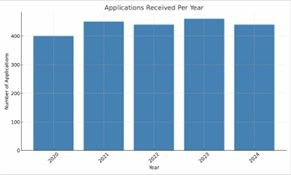A propos
Cabinet Aurilex
Aurilex, dont le siège est situé à Paris, France, est un cabinet d'avocats spécialisé dans la protection de la propriété intellectuelle européenne, la protection des données personnelles dans l'UE et le droit des affaires. Le cabinet Aurilex suit la philosophie du « professionnalisme et de l'excellence » et s'engage à offrir à ses clients des solutions optimales, en les servant avec dévouement et succès.
Aurilex
vous offre des solutions sur mesure.
Service intégral pour la propriété intellectuelle
Vendez-vous des produits dans plusieurs pays de l'UE sur des plateformes en ligne et voulez-vous protéger vos marques, dessins, modèles ou brevets en France ou à l'échelle de l'UE?
Vous faites des affaires avec des entreprises chinoises et avez besoin de conclure des contrats pour protéger vos droits de propriété intellectuelle?
Aurilex vous fournit des services juridiques complets, du dépôt à la protection des droits en Europe et en Chine.
Accompagnement juridique pour la création d'application ou du site
Envisagez-vous de créer un site ou une application pour votre start-up?
Aurilex vous assiste dans le lancement de votre aventure.
Services juridiques d'entreprise et commerciaux
Vous avez besoin de créer une société, d'investir ou de créer une entreprise ?
Aurilex vous assiste dans la constitution de la société et la rédaction de divers contrats commerciaux dans l'exploitation commerciale.
Conformité tech et data
Êtes-vous une entreprise technologique traitant des données de consommateurs de l’UE via votre site web, votre application mobile ou vos activités commerciales ? Déployez-vous des systèmes d’IA dans l’UE ?
Aurilex vous accompagne en toute confiance dans la conformité aux réglementations européennes sur l’IA et la protection des données personnelles (RGPD).
Domaines d'expertise
Poursuivre l'excellence
Technologie informatique
Contrats informatiques, litiges informatiques, IoT
Conformité RGPD
Conformité RGPD, mise en place de systèmes de conformité pour les entreprises, services externes de DPO
Commercial
Contrats commerciaux, conseils juridiques pour les entreprises qui font des affaires en Europe et en Chine, litiges commerciaux
Solutions juridiques professionnelles
Compétence
Des solutions juridiques détaillées et précises sont fournies grâce à une riche expérience.
Le secret professionnel
Votre identité et le contenu de la consultation sont strictement confidentiels.
Fiable
Des délais respectés pour un travail de qualité
Actualités


















